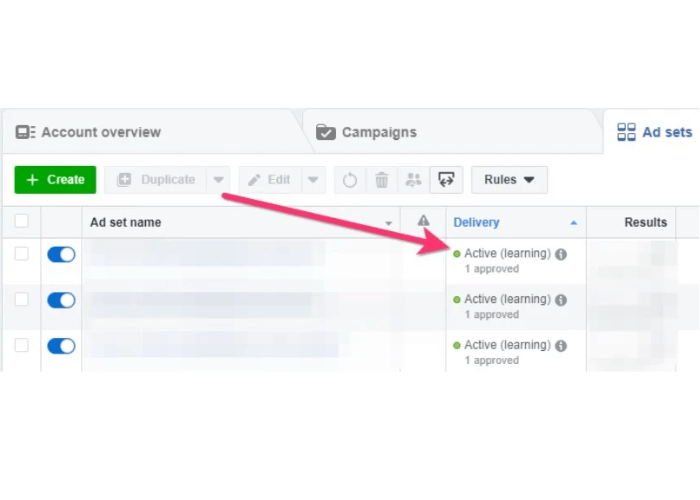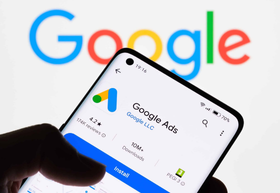Navigating the Performance Marketing Maze: Understanding the Learning Phase in Google and Meta Ads

Ever feel like your brand-new Google or Meta Ads campaign is stumbling in the dark? Like it's not quite hitting the right notes, and the results are… well, less than stellar? You're likely experiencing the learning phase, a critical initial period that every performance marketer needs to understand. As PPC marketing agencies will tell you, mastering this phase can be the difference between a campaign that soars and one that fizzles out.
What Exactly is the Learning Phase?
Think of the learning phase as your campaign's initial schooling. It's the period when the ad platform's algorithms – the intricate engines that decide when, where, and to whom your ads are shown – are actively exploring and learning about the best way to achieve your campaign goals. This involves analyzing vast amounts of data, identifying patterns, and figuring out which audiences, placements, and creative combinations are most likely to drive the desired outcomes, whether that's clicks, conversions, or brand awareness. For performance marketing agencies, guiding campaigns successfully through this phase is paramount to delivering results.
The Learning Curve on Meta Ads
Meta's advertising platform (Facebook and Instagram) heavily relies on machine learning to optimize ad delivery. When you launch a new campaign or make significant changes to an existing one (like a substantial budget increase or a major creative overhaul), it enters the learning phase.
During this phase, Meta's algorithm is actively testing different ad variations and audience segments. It's trying to understand who is most likely to engage with your ads and complete your desired action. You might see fluctuations in performance during this time – some days might bring promising results, while others might feel disappointing. This is a normal part of the process as the algorithm gathers data and refines its approach.
Meta typically states that a campaign leaves the learning phase after around 50 optimization events (like conversions, landing page views, or link clicks, depending on your campaign objective) within a 7-day period. Until then, your ad delivery might be less stable, and your cost per result might be higher than what you'll eventually achieve. Patience is key here. Avoid making frequent, drastic changes during this period, as it can reset the learning process and prolong the unstable phase.

Google Ads: A Similar Journey
Google Ads also employs a learning phase for new campaigns and significant edits. Similar to Meta, Google's algorithm needs time to analyze data and understand which search queries, audiences (if you're using observation or targeting), and ad creatives are most effective for your goals.
While Google doesn't explicitly state a specific number of conversion events to exit the learning phase for all campaign types, it emphasizes the importance of allowing the system time to gather sufficient data. Factors like your daily budget, target audience size, and conversion volume can influence the duration of this phase.
Just like with Meta, you might observe performance variability during Google's learning period. Your cost per click (CPC) or cost per acquisition (CPA) might fluctuate as the algorithm tests and refines its strategy. It's crucial to monitor your campaign metrics but avoid making knee-jerk reactions based on short-term performance dips. Give Google's algorithms the space and data they need to optimize effectively.

Key Recommendations for Navigating the Learning Phase:
- Set Realistic Expectations: Understand that initial performance might not be representative of long-term results. Be prepared for some variability and higher costs initially.
- Provide Sufficient Budget: Ensure your daily budget is adequate to allow the platform to generate enough data within a reasonable timeframe. Severely restricted budgets can prolong the learning phase.
- Define Clear Conversion Goals: Make sure your conversion tracking is accurately set up. The algorithm needs clear signals to understand what constitutes a successful outcome.
- Avoid Major Changes: Resist the urge to make frequent and significant edits to your campaigns during the learning phase. This can disrupt the algorithm's learning process and force it to start over. Small, incremental adjustments are generally better.
- Focus on Audience and Creative Quality: Ensure your targeting is well-defined and your ad creatives are compelling and relevant to your audience. This gives the algorithm a strong foundation to work with.
- Monitor Performance (Without Panicking): Keep a close eye on key metrics, but avoid making rash decisions based on a few days of data. Look for trends over a longer period.
- Trust the Process: Both Google and Meta's algorithms are designed to optimize for your goals over time. Give them the opportunity to learn and improve.
In Conclusion: Embrace the Learning Phase
The learning phase in Google and Meta Ads is an essential part of the campaign lifecycle. By understanding what it is, what to expect, and how to navigate it effectively, you can set your campaigns up for long-term success. It requires patience, a data-driven mindset, and a willingness to let the algorithms do their work. Remember, even the most experienced performance marketing agencies understand the importance of allowing this initial learning period to unfold.
Ready to level up your PPC performance and navigate the learning phase like a pro? Our team of experts at Pop Up Teams is here to help. Reach out to our dedicated pop-up teams today for a consultation and let us guide your campaigns to achieve remarkable results. We're excited to partner with you!
Read similar articles



.png)
.png)

.png)




